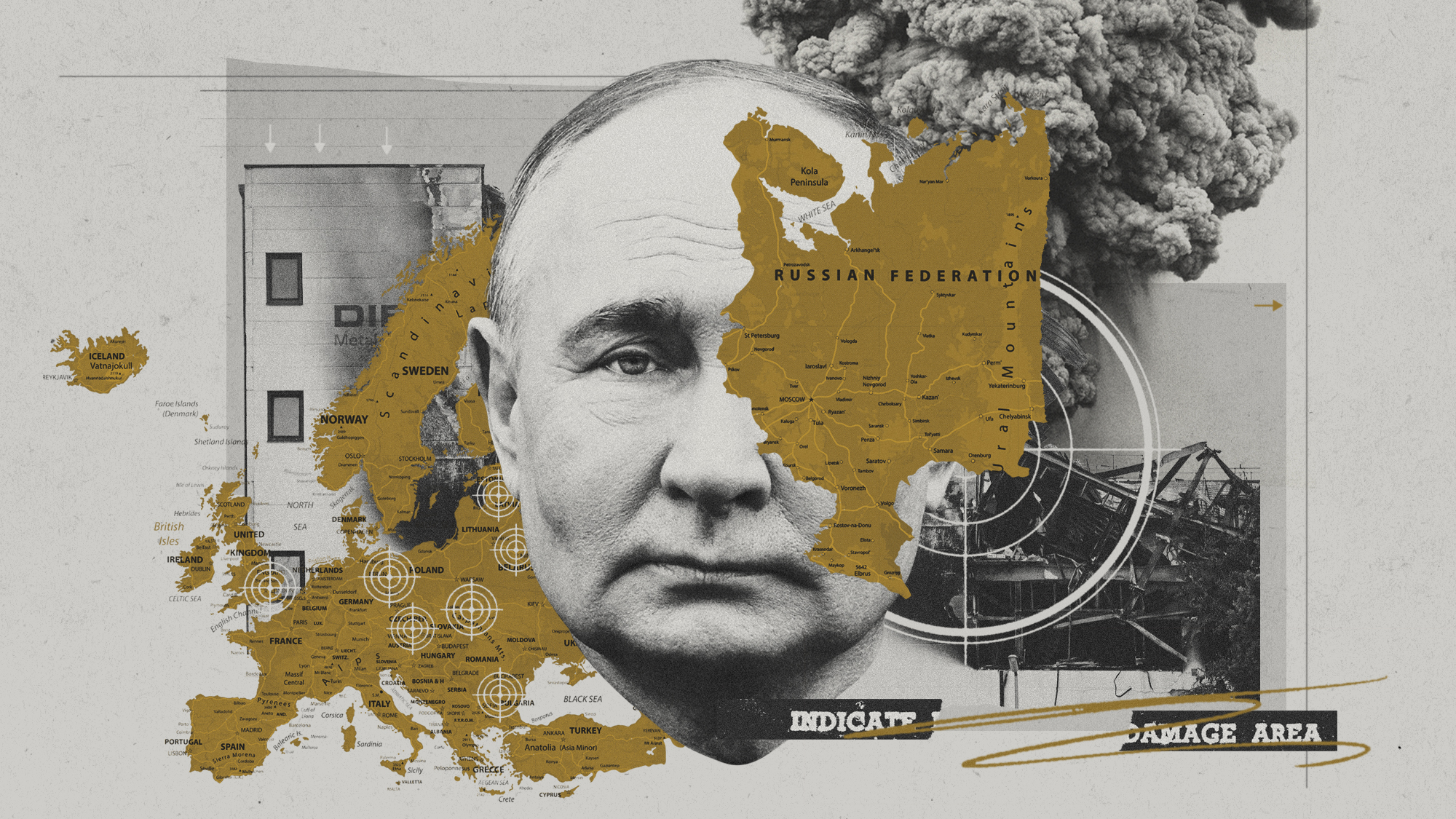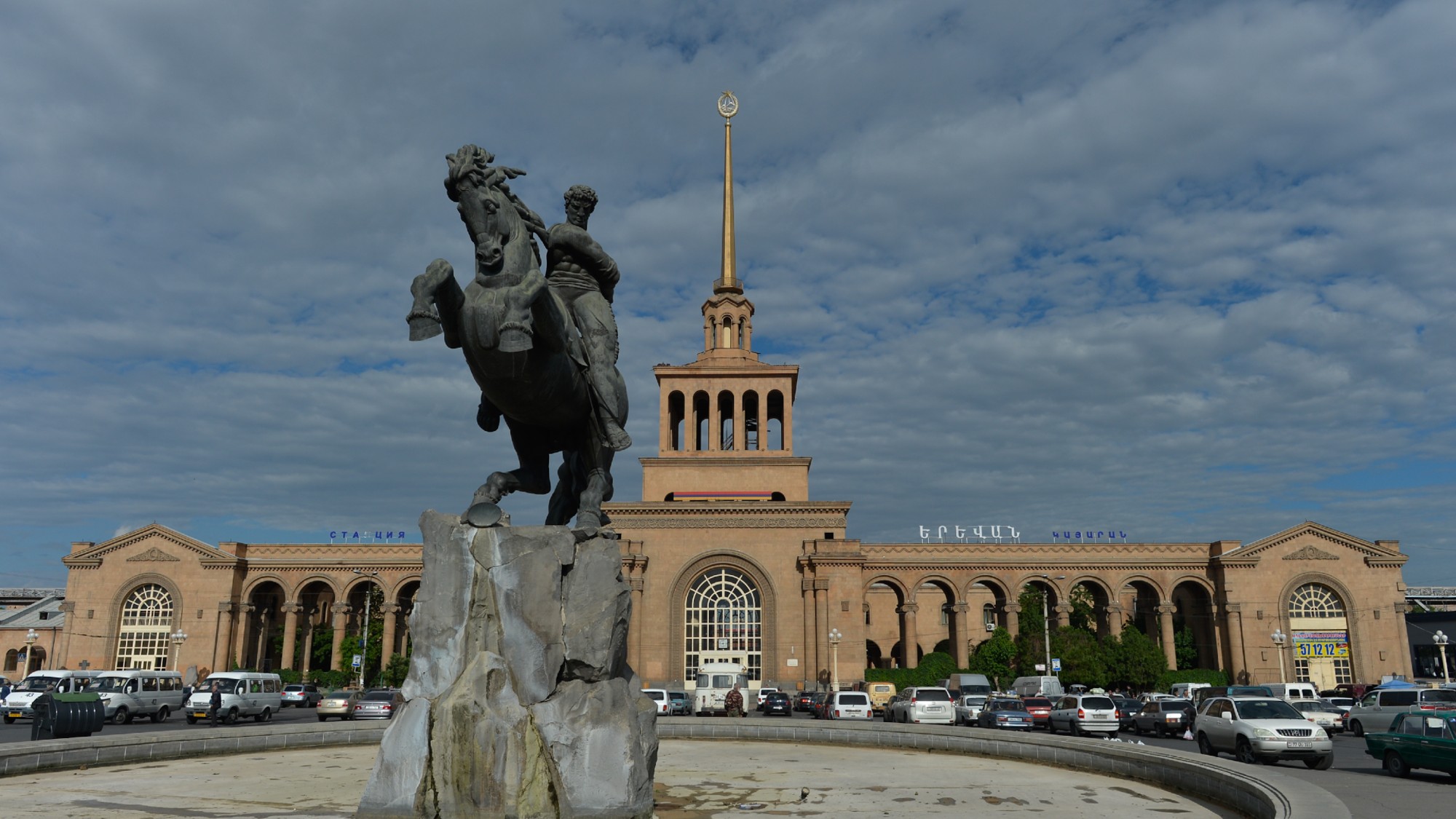Is Russia waging a 'hybrid war' against the West?
Attacks across Europe are raising fears


A free daily email with the biggest news stories of the day – and the best features from TheWeek.com
You are now subscribed
Your newsletter sign-up was successful
A warehouse fire in London. A defector shot dead in Spain. A factory fire in Berlin. Alleged bomb plotters arrested in France and Germany. A new wave of terrorism? Not exactly. Instead, these "seemingly random attacks" are part of Russia's "hybrid war on the West," said CNN. That war is an outgrowth of Russia's invasion of Ukraine, aimed at sabotaging Kyiv's European allies. The goal is to "weaken Western resolve to support Ukraine and undermine unity within the West," said one expert.
That's creating a "major challenge for the U.S. and NATO," said The Hill. The attacks cannot be ignored. The trick now is to figure out how to respond "without sparking a major conflict with Russian President Vladimir Putin." There are no guidelines for how to respond to such "gray zone" attacks that fall short of a full-blown war, which is why European officials are treading cautiously. "Russia is throwing at us all the time new challenges, new risks," said one ambassador, and the "hybrid [war] has turned to be one of the serious ones for the alliance."
What did the commentators say?
"Russia is punching back at NATO in the shadows," David Ignatius said at The Washington Post. U.S. intelligence agencies are providing information to European counterparts to "disrupt the saboteurs," which have been "mostly linked to European logistical support for Ukraine." Norwegian officials, for example, recently issued a warning that attacks could target companies that deliver arms to Ukraine's defenders. That escalation makes the war even more dangerous for the world. "The danger of a misstep gets worse."
The Week
Escape your echo chamber. Get the facts behind the news, plus analysis from multiple perspectives.

Sign up for The Week's Free Newsletters
From our morning news briefing to a weekly Good News Newsletter, get the best of The Week delivered directly to your inbox.
From our morning news briefing to a weekly Good News Newsletter, get the best of The Week delivered directly to your inbox.
The sabotage "is designed to fray Europe's nerves and instill caution through fear," said The Economist. But it's not new. Russia has a long history — going back well before the Ukraine invasion — of supporting violent attacks that don't quite approach the threshold of war: In 2011, for example, Russian intelligence units were linked to an arms depot explosion in Bulgaria. The latest wave of attacks is a sign of Vladimir Putin's desire to "put pressure on the West to restrain Ukraine and limit its own involvement in the war." So far, though, Ukraine's support is holding steady. "The strategy has not worked."
What next?
Western officials are still trying to formulate a response, said Financial Times. One possibility: A "tit for tat" information campaign that "rams home" the costs of the Russo-Ukrainian war to ordinary Russians. "If you are an average Russian, not a day should go by when you are not reminded of the huge number of casualties that Russian troops have suffered," said Eliot Cohen, a former State Department adviser. More broadly, the goal is to create a deterrence strategy that doesn't tip over into the kinds of "unethical or illegal means" being used by Putin's agents.
In the meantime, U.S. officials have raised the alert at American military bases over "vague threats" from Russia about Ukraine's use of long-range weapons, The New York Times said. Any attack on U.S. bases or personnel "would be a significant escalation of its war in Ukraine." The new alert is designed to make sure service members are being cautious. The goal? "Remain vigilant and stay alert at all times."
A free daily email with the biggest news stories of the day – and the best features from TheWeek.com
Joel Mathis is a writer with 30 years of newspaper and online journalism experience. His work also regularly appears in National Geographic and The Kansas City Star. His awards include best online commentary at the Online News Association and (twice) at the City and Regional Magazine Association.
-
 How the FCC’s ‘equal time’ rule works
How the FCC’s ‘equal time’ rule worksIn the Spotlight The law is at the heart of the Colbert-CBS conflict
-
 What is the endgame in the DHS shutdown?
What is the endgame in the DHS shutdown?Today’s Big Question Democrats want to rein in ICE’s immigration crackdown
-
 ‘Poor time management isn’t just an inconvenience’
‘Poor time management isn’t just an inconvenience’Instant Opinion Opinion, comment and editorials of the day
-
 Witkoff and Kushner tackle Ukraine, Iran in Geneva
Witkoff and Kushner tackle Ukraine, Iran in GenevaSpeed Read Steve Witkoff and Jared Kushner held negotiations aimed at securing a nuclear deal with Iran and an end to Russia’s war in Ukraine
-
 ‘The forces he united still shape the Democratic Party’
‘The forces he united still shape the Democratic Party’Instant Opinion Opinion, comment and editorials of the day
-
 How are Democrats turning DOJ lemons into partisan lemonade?
How are Democrats turning DOJ lemons into partisan lemonade?TODAY’S BIG QUESTION As the Trump administration continues to try — and fail — at indicting its political enemies, Democratic lawmakers have begun seizing the moment for themselves
-
 ‘The mark’s significance is psychological, if that’
‘The mark’s significance is psychological, if that’Instant Opinion Opinion, comment and editorials of the day
-
 How did ‘wine moms’ become the face of anti-ICE protests?
How did ‘wine moms’ become the face of anti-ICE protests?Today’s Big Question Women lead the resistance to Trump’s deportations
-
 How are Democrats trying to reform ICE?
How are Democrats trying to reform ICE?Today’s Big Question Democratic leadership has put forth several demands for the agency
-
 ‘The West needs people’
‘The West needs people’Instant Opinion Opinion, comment and editorials of the day
-
 ‘Various international actors hope to influence the result for their own benefit’
‘Various international actors hope to influence the result for their own benefit’Instant Opinion Opinion, comment and editorials of the day
